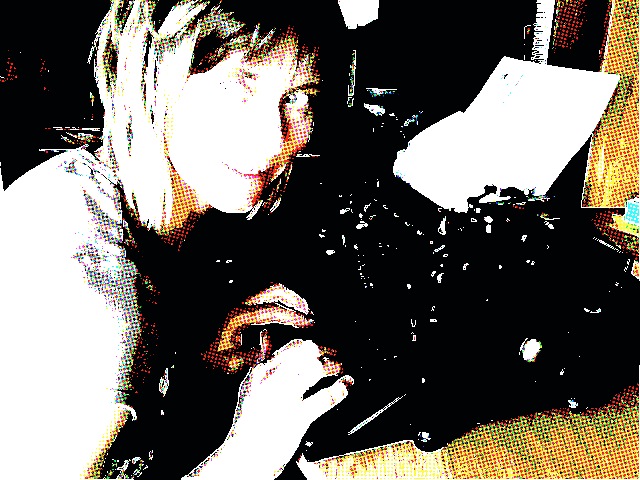Three of the loveliest books I have read in the last year
are also the most disturbing: When the
Saints by Sarah Mian, Heather O’Neill’s The
Girl who was Saturday Night and Eleanor
and Park by Rainbow Rowell.
 As I read these books I would stick a scrap of paper at each
page that offered some piece of perfect prose, some gorgeous turn of phrase,
some nearly-impossible-to-imagine-having-created metaphor, some piece of writing
I wanted to come back to and re-read—and before I was halfway through, the
books sprouted these markers like a field of grass. I’ve long since returned
the books to the library, but the stories—and the writing—stay with me.
As I read these books I would stick a scrap of paper at each
page that offered some piece of perfect prose, some gorgeous turn of phrase,
some nearly-impossible-to-imagine-having-created metaphor, some piece of writing
I wanted to come back to and re-read—and before I was halfway through, the
books sprouted these markers like a field of grass. I’ve long since returned
the books to the library, but the stories—and the writing—stay with me.
Heather O’Neill captures the zeitgeist of Quebec—and thus
Canada—of the 70s exactly as I felt it. She writes in French, but in English,
and offers us those exquisite cat metaphors that literally make my heart beat
faster—in delight and envy.
Rowell gets inside her characters and shows them to us one
layer at a time, with suspense and empathy that pull the reader forward into
deep and deeper understandings of why people are the way they are.
And Sarah Mian’s When
the Saints is literally unbelievable—both the quality of its writing and
the sadness and depravity of its story. Problem is, truth is stranger than fiction, and when the fiction’s this strange, you
know the truth is worse.
That’s why these beautiful books are so disturbing.
These three novels feature female protagonists who were
raised by people who were inept, unstable, addicted. Our heroes experienced trauma,
mistreatment, and damaging parenting. The girls/women who lived through their
upbringings were affected—scarred, scared, traumatized.
And what I know is that the authors wrote these stories
because somehow they know them.
“We write about the worlds we already know,” says Professor
Piper in Rowell’s Fangirl (another
worthy read by the author of Eleanor and
Park, but not in the same ballpark). “I take something that happened to me...
and make it happen to somebody else. I pick my life apart that way; try to
understand it better by writing straight through it... Everything starts with a
little truth, then I spin my webs around it.”
The true beauty—on top of the lovely writing—is the
characters’ resiliency. Mian, O’Neill and Rowell write from the other side,
from a place of redemption, from the perspective of survival—and more—of resiliency
and transformation.
I recently learned there’s a term for this process (thanks
to Sarah Bee): bibliotherapy is “an expressive therapy that uses an
individual's relationship to the content of books and poetry and other written
words as therapy” (thanks, Wikipedia).
And thanks, authors, who understand that a happy ending
doesn’t always mean resolution: a happy ending means there was learning, personal
evolution, and the miracle of an open mind to open our eyes to the beauty even of
imperfection.

1 comment:
Hey Kat, just happened to come across this and thought I'd say hello! Thank you for taking the time to share your thoughts on When the Saints. :-)
Post a Comment